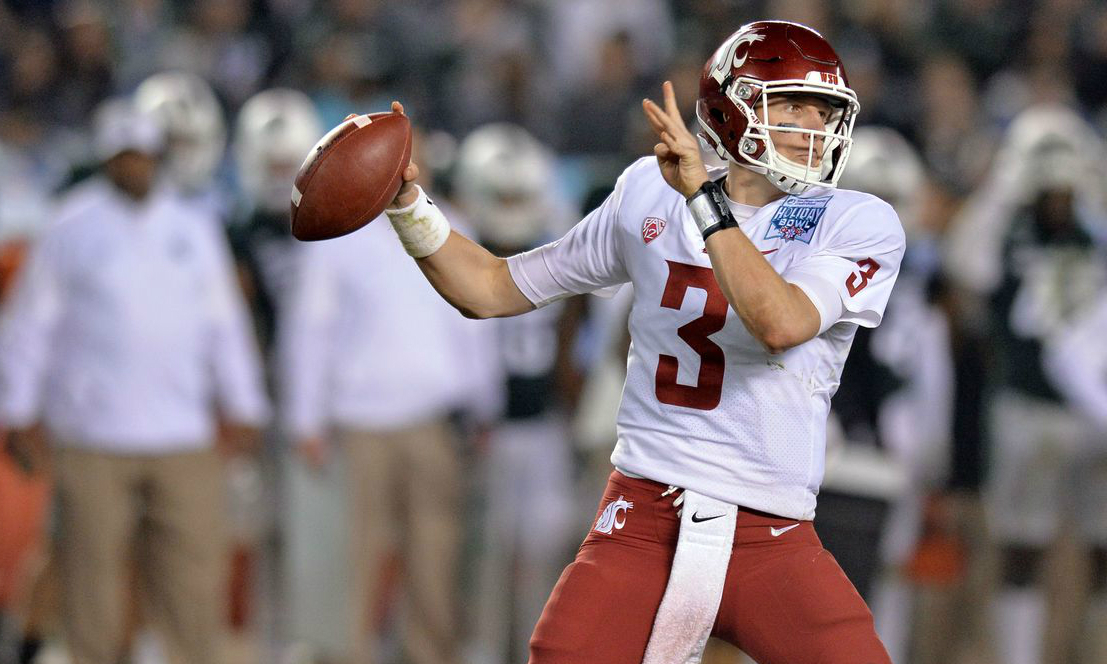(Note: This will be more of a serious article, so if you’re looking for a good laugh, you won’t find it here)
A while back, we heard the news about Tyler Hilinski and the tragic incident that occurred. It brought up various topics and outlooks surrounding mental health for both everyday people as well as student-athletes. It raised questions pertaining to CTE (chronic traumatic encephalopathy) and how sports such as football or hockey are incredibly dangerous and the steps needed to help further prevent these types of head trauma injuries. Last of all, it brought the sensitive subject of suicide to the forefront and reminded us that there are people waiting for our calls in the event of a crisis. The National Suicide Prevention Lifeline, which can be reached at 1-(800) 273-8255, or even people on social media (My DM’s on Twitter are always open for anything, from depression all the way to suicidal thoughts). A prime example of its meaning is the rapper Logic’s song titled 1-800-273-8255 and how after it’s release, call’s to the NSPL rose 27% and more and more people found help.

Hilinski’s autopsy confirming the post mortem diagnosis of CTE was released to the public on The Today Show by Tyler’s father. Not only did he develop this disease in his brain, but he supposedly had the brain of a 65-year-old. The main reasoning towards how he developed this is pointing towards football. Mark, Tyler’s Father, stated in the interview, “The medical examiner said he had the brain of a 65-year-old, which is really hard to take. He was the sweetest, most outgoing, giving kid. That was difficult to hear.”
In a documentary produced by Sports Illustrated, Kym, Tyler’s Mother, was quoted saying this shortly after Tyler’s death, “Did football kill Tyler? I don’t think so. Did he get CTE from football? Probably. Was that the only thing that attributed to his death? I don’t know.”
Personal story time. I have been playing sports ever since I could walk. Baseball, basketball, football, hell even Motocross, you name it, I played it. When I was younger and heading into my late teen years, traveling through junior high and high school, I really never gave any thought about the long term effects of injuries from playing the sports I loved. I had broken an arm, collarbone, fingers and toes, but the one thing that I was always wondering about were concussions. I have had between a total of 5-6, mostly coming from football and motocross accidents. It wasn’t until I hit my junior year that during the off-season, my eye sight started to become more hazy and I was struggling to read things from a distance. Sure enough, I went to an ophthalmologist, and he revealed I needed new glasses. While he never told me why and brushed off the reasoning as a cause of “age”, I sensed that it was due to my head injuries.
Just the thought of rapid blows to my head from football or falling off of a dirtbike and banging my head against the ground at 25 miles per hour truly made me fear for what would happen later in life. It was also around this time that a few big names in the NFL, such as Ken Stabler or Dwight Clark, revealed that they had CTE and that it was directly impacting their lives. Did it scare the shit out of me? Yes. Do I still have some thought’s about what will happen later in life? Yes.
So, what does this have to do with CTE or Tyler Hilinski? It all relates in one way…
Mental health.
It’s a topic that no one really wants to talk about, but it needs to be discussed at some point. I won’t sugar coat anything or make it a story, but I have struggled with my fair share of depression, from a young age due to family troubles, all the way to my first semester of college because of the pure stress and the toll it took on me. Thankfully, we’re witnessing steps be taken about mental health, most notably in the NBA.
This is just the start of what needs to become a more well-understood topic. Everyday people can struggle with mental health, such as an everyday person who can show no signs, such as me, all the way to one of the biggest names in the NBA today, such as Demar DeRozan or Kevin Love.
So please, if you are struggling, don’t hide it and talk to someone. A family member, close friend, teammate, or a complete stranger who is willing to help you get through the struggle(s) in your life. You’re never alone, and someone is always there for you.




